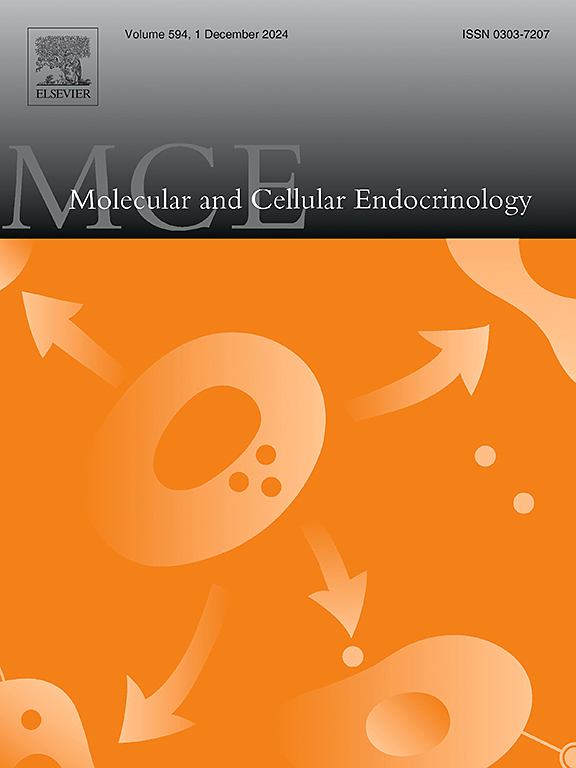卵泡液分析揭示抗勒氏激素与糖酵解和线粒体功能障碍作为多囊卵巢综合征的标志物
IF 3.6
3区 医学
Q2 CELL BIOLOGY
引用次数: 0
摘要
多囊卵巢综合征(PCOS)是一种影响育龄妇女的常见内分泌疾病,但影响其病理生理的分子机制尚不清楚。一项全面的前瞻性病例对照研究旨在阐明多囊卵巢综合征(PCOS)女性卵泡液(FF)激素和代谢物特征及其对卵母细胞成熟和受精的影响。该研究涉及40名年龄和体重指数(BMI)匹配的接受体外受精(IVF)的女性,其中包括20名诊断为多囊卵巢综合征的女性和20名因输卵管或男性因素而不育的对照组。PCOS女性FF中存在独特的激素谱,其特征是抗本文章由计算机程序翻译,如有差异,请以英文原文为准。
Follicular fluid profiling unveils anti-Müllerian hormone alongside glycolytic and mitochondrial dysfunction as markers of polycystic ovary syndrome
Polycystic ovary syndrome (PCOS) is a prevalent endocrine disorder affecting women of reproductive age, yet the molecular mechanisms influencing its pathophysiology remain poorly defined. A comprehensive prospective case-control study was conducted to elucidate the follicular fluid (FF) hormone and metabolite profile in women with PCOS and its implications for oocyte maturation and fertilization. The study involved 40 age- and body mass index (BMI)-matched women undergoing in vitro fertilization (IVF), including 20 diagnosed with PCOS and 20 controls with infertility due to tubal or male factors. A distinctive hormone profile in the FF of women with PCOS was identified, characterized by significantly higher anti-Müllerian hormone (AMH) levels (24.90 ± 17.61 vs. 16.68 ± 17.67 pmol/L, p = 0.0039) and lower progesterone (8253 ± 4748 vs. 25362 ± 10862 ng/mL, p < 0.0001) and estradiol levels (388.23 ± 210.58 vs. 651.48 ± 390.79 ng/mL, p = 0.0208) compared to normoovulatory controls. Moreover, a metabolite fingerprint associated with glycolytic and mitochondrial dysfunction was observed, as evidenced by lower lactate (4575.44 ± 1507.76 vs. 5595.34 ± 1073.32 μmol/L, p = 0.0182) and formate (64.51 ± 16.06 vs. 75.81 ± 16.63 μmol/L, p = 0.0351) levels and higher citrate levels (136.93 ± 52.53 vs. 109.15 ± 24.17 μmol/L, p = 0.0409) in the FF of women with PCOS. These findings suggest that the molecular profile of the FF in women with PCOS might be related to granulosa cell glycolytic and mitochondrial dysfunction, which can have a negative impact on oocyte fertilization potential. The study provides an integrative analysis of the FF hormone and metabolite profile in women with PCOS, offering insights into the molecular mechanisms underlying the reproductive dysfunctions associated with this condition.
求助全文
通过发布文献求助,成功后即可免费获取论文全文。
去求助
来源期刊

Molecular and Cellular Endocrinology
医学-内分泌学与代谢
CiteScore
9.00
自引率
2.40%
发文量
174
审稿时长
42 days
期刊介绍:
Molecular and Cellular Endocrinology was established in 1974 to meet the demand for integrated publication on all aspects related to the genetic and biochemical effects, synthesis and secretions of extracellular signals (hormones, neurotransmitters, etc.) and to the understanding of cellular regulatory mechanisms involved in hormonal control.
 求助内容:
求助内容: 应助结果提醒方式:
应助结果提醒方式:


